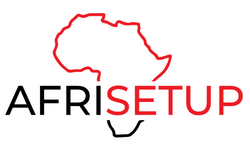- By afrisetupconsultants
- Uncategorized
- 0 Comment
Start an SME in Uganda– Small and Medium Enterprises (SMEs) play a vital role in Uganda’s economy, contributing significantly to employment generation, innovation, and economic growth. SMEs in Uganda are typically defined by their relatively small scale of operations, with limited resources and workforce compared to larger enterprises.
Are you looking to start an SME in Uganda but don’t know where to begin the process? Don’t worry, we are here to assist you every step of the way. For years, we have been helping business owners like yourself start an SME in Uganda from the comfort of their homes. Leave the headache of paperwork to Afrisetup and start your SME in Uganda hassle-free.

SME in Uganda | Uganda Startup
SMEs in Uganda are diverse and encompass a wide range of industries, including agriculture, manufacturing, trade, services, and tourism. They are often characterized by their flexibility, adaptability, and resilience in the face of challenges such as limited access to finance, inadequate infrastructure, and regulatory constraints.
SMEs in Uganda benefit from various support programs and initiatives aimed at promoting their growth and sustainability. Government agencies, non-governmental organizations, and development partners provide technical assistance, capacity-building training, access to finance, and market linkages to support SME development.
In recent years, there has been a growing recognition of the importance of SMEs in driving inclusive growth and development in Uganda. Efforts to address the constraints facing SMEs, improve the business environment, and enhance access to finance are essential for unlocking the full potential of SMEs to contribute to Uganda’s socio-economic development. Contact us to start an SME in Uganda today!
SME financing in Uganda
If you are looking to start an SME in Uganda, it is important to be aware of the financial options available SMEs in Uganda which include:
1.Commercial Banks and Financial Institutions
SMEs can access financing from commercial banks and financial institutions through loans, lines of credit, and overdraft facilities.
2. Microfinance Institutions (MFIs)
MFIs provide microloans, small business loans, and financial services to SMEs, particularly those in rural and underserved areas.
3. Development Finance Institutions (DFIs)
Development finance institutions such as the Uganda Development Bank (UDB) and the Uganda Industrial Research Institute offer financing and support services to SMEs.
4. Government-Supported Programs
The Ugandan government implements various programs and initiatives to support SME financing, including the Uganda Development Corporation, Youth Livelihood Program (YLP), and Women Entrepreneurship Program.
5. Venture Capital and Private Equity
SMEs with growth potential can attract equity investment from venture capital firms, private equity investors, and angel investors.
6. Trade Credit and Supplier Financing
SMEs can negotiate trade credit terms and supplier financing arrangements with suppliers, manufacturers, and distributors.
7. Export Credit and Trade Finance
SMEs engaged in international trade can access export credit and trade finance facilities to facilitate export transactions.
N/B ~ These financial options are available for any business owner looking to start an SME in Uganda. It is advisable to reach out to us for proper advice.
SMES statistics in Uganda
Here are some general insights to go through before you start an SME in Uganda:
1. Contribution to the Economy: SMEs make a significant contribution to Uganda’s economy, accounting for a large portion of employment and GDP. It is estimated that SMEs contribute over 70% of Uganda’s GDP and employ a substantial portion of the country’s workforce.
2. Sectoral Distribution: SMEs in Uganda operate across various sectors, including agriculture, manufacturing, trade, services, and tourism.
3. Government Support: The Ugandan government has implemented various initiatives to support SME development, including providing financial assistance, offering business development services and improving access to markets.
5. Informal Sector: A significant portion of SMEs in Uganda operates in the informal sector, with many businesses operating on a small scale and outside the formal regulatory framework.
6. Entrepreneurship and Innovation: Uganda has a vibrant entrepreneurial ecosystem characterized by innovation, creativity, and resilience. Many SMEs in Uganda are led by young entrepreneurs who are driving change and leveraging technology to address local challenges and seize opportunities for growth.
7. International Trade: Some SMEs in Uganda are engaged in international trade, exporting goods and services to regional and global markets.
NOTE: These insights provide a general overview of the SME landscape in Uganda, which are helpful to business owners looking to start an SME in Uganda, highlighting the sector’s importance and opportunities for growth and development.
List of SMEs in Uganda
Here are some general categories and examples of SMEs in Uganda that you can learn from as you consider to start an SME in Uganda:
1. Agriculture and Agribusiness
o Smallholder farmers
o Agro-processing businesses (e.g., grain mills, fruit juice processors)
o Livestock farmers and dairy processors
2. Manufacturing
o Small-scale manufacturers of textiles and garments
o Food processing companies (e.g., bakeries, snack manufacturers)
o Construction materials producers (e.g., brick makers, metal fabricators)
3. Services
o Retail shops and grocery stores
o Restaurants, cafes, and fast-food outlets
o Hair salons, barbershops, and beauty parlors
o Repair and maintenance services (e.g., auto repair, electronics repair)
4. Retail and Trade
o Wholesale distributors and suppliers
o Importers and exporters of various goods
o Small-scale traders and market vendors
5. ICT and Technology
o Software development firms
o IT consulting and services companies
o Mobile app developers and digital content creators
6. Tourism and Hospitality
o Guesthouses, lodges, and small hotels
o Tour operators and travel agencies
o Craft producers and souvenir shops
7. Construction and Real Estate
o Small construction firms and contractors
o Real estate agencies and property developers
o Building materials suppliers
8. Healthcare and Pharmaceuticals
o Clinics and medical centers
o Pharmaceutical distributors and wholesalers
o Medical equipment suppliers
9. Education and Training
o Private schools and tutoring centers
o Vocational training institutes
o Educational materials suppliers
10. Financial Services
o Microfinance institutions
o Savings and credit cooperatives (SACCOs)
o Insurance brokers and agents
Steps on how to start an SME in Uganda
Starting an SME in Uganda involves several steps to ensure legal compliance, establish a solid foundation, and set the business on a path to success. Here are the key steps to start an SME in Uganda:
1. Market Research and Business Idea: Conduct thorough market research to identify viable business opportunities, assess market demand, competition, and consumer preferences.
2. Business Plan Development: Create a comprehensive business plan outlining your business concept, objectives, target market, products or services, marketing strategy, operations plan, financial projections, and startup requirements.
3. Legal Structure and Registration: Choose a suitable legal structure for your SME, such as a sole proprietorship, partnership, limited liability company (LLC), or corporation. Register your business with the Uganda Registration Services Bureau.
4. Tax Registration and Compliance: Register your SME for taxation purposes with the Uganda Revenue Authority (URA) to obtain a Tax Identification Number (TIN).
5. Financing and Capitalization: Determine your startup capital requirements and explore financing options available for SMEs in Uganda. Consider self-funding, loans from financial institutions, investment from investors and grants.
6.Location and Infrastructure: Choose a suitable location for your SME based on factors such as accessibility, market proximity, infrastructure availability, and cost considerations.
7. Product Development and Supplier Relationships: Develop your products or services based on market demand and customer feedback. Establish relationships with reliable suppliers, vendors to source raw materials and inventory.
8. Marketing and Branding: Develop a marketing strategy to promote your SME and attract customers. Utilize various marketing channels, such as digital marketing, social media, advertising, networking, to raise awareness and generate sales leads
9. Operations and Human Resources: Set up efficient business operations, systems, and processes to manage day-to-day activities, production, sales, and customer service.
10. Launch and Growth: Launch your SME officially and start serving customers. Monitor business performance, track key performance indicators (KPIs), and evaluate progress against business goals and targets
By following these steps and conducting thorough planning and preparation, you can successfully start an SME in Uganda and grow it.
Roles of small and medium enterprises in Uganda
Small and Medium Enterprises play significant roles in Uganda’s economy, contributing to economic growth, job creation, poverty reduction, innovation, and social development.
Below are some of the key roles of SMEs in Uganda:
1. Employment Generation: SMEs are major employers in Uganda, providing opportunities for formal and informal employment across various sectors of the economy.
2. Income Generation and Poverty Alleviation: SMEs empower individuals and households by providing opportunities to generate income, create wealth, and improve living standards.
3. Contribution to GDP: SMEs make significant contributions to Uganda’s Gross Domestic Product by driving economic activity, productivity, and output.
4. Promotion of Innovation and Creativity: SMEs foster innovation, creativity, and entrepreneurship by introducing new products, services, processes, and business models to the market.
5. Market Diversification and Competition: SMEs contribute to market diversification and competition by offering a wide range of products and services to consumers.
Overall, when you start an SME in Uganda, you not only strengthen your financial capabilities but also contribute to the economic development and drivers of inclusive growth in the country, playing a crucial role in fostering resilience, prosperity, and sustainable development across the nation.
What are the key benefits of starting an SME in Uganda?
Starting a Small and Medium Enterprise (SME) in Uganda offers various benefits, both for entrepreneurs and the economy as a whole. Here are some key benefits you will enjoy when you start an SME in Uganda:
1. Entrepreneurial Opportunities: Starting an SME provides entrepreneurs with opportunities to pursue their passion, creativity, and ideas.
2. Job Creation: SMEs are major employers in Uganda, contributing significantly to job creation and reducing unemployment.
3. Income Generation: Starting an SME enables individuals to generate income, create wealth, and improve their living standards.
4. Contribution to GDP: SMEs make significant contributions to Uganda’s Gross Domestic Product by driving economic activity, productivity, and output across various sectors.
5. Innovation and Creativity: SMEs foster innovation, creativity, and entrepreneurship by introducing new products, services, processes, and business models to the market.
6. Flexibility and Adaptability: SMEs are agile and adaptable, capable of responding quickly to changing market conditions, consumer preferences, and industry trends. They have the flexibility to adjust operations.
7. Local and Regional Development: SMEs play a vital role in local and regional development by decentralizing economic activity, promoting balanced growth, and addressing socio-economic disparities.
8. Export and Trade Opportunities: SMEs in Uganda have opportunities to engage in export-oriented activities, accessing regional and international markets for their products and services.
What legal requirements do I need to fulfill to start an SME in Uganda?
To start an SME in Uganda, you need to fulfill several legal requirements to ensure compliance with the country’s regulatory framework. Here are the key legal requirements you need to consider:
1. Business Registration in Uganda: Register your SME with the Uganda Registration Services Bureau (URSB) or relevant authority to obtain a Certificate of Incorporation or Business Registration Certificate.
2. Tax Registration: Register your SME for taxation purposes with the Uganda Revenue Authority (URA) to obtain a Tax Identification Number (TIN).
3. Licenses and Permits: Obtain any necessary licenses, permits, or regulatory approvals for your business activities from relevant government agencies, ministries, or local authorities.
4. Employment Regulations: Familiarize yourself with labor laws and employment regulations in Uganda, including minimum wage requirements, employment contracts, worker rights, and occupational health and safety standards.
5. Intellectual Property Protection: Consider protecting your intellectual property (IP) rights, such as trademarks, patents, copyrights, and trade secrets, to safeguard your business assets and innovations.
6. Business Permits and Zoning: Check local zoning regulations and land-use policies to ensure compliance with zoning requirements for your business premises or operations. Obtain any necessary land use permits, building permits, or environmental clearances from local authorities before commencing business activities.
7. Contractual Agreements: Draft and negotiate contractual agreements, such as lease agreements, supplier contracts, customer agreements, and partnership agreements, to formalize business relationships and protect your interests.
8. Data Protection and Privacy: If your SME collects, stores, or processes personal data from customers or employees, ensure compliance with data protection and privacy regulations in Uganda.
9. Compliance Reporting and Record Keeping: Establish systems and procedures for compliance reporting, record keeping, and regulatory filings required by government authorities.
10. Legal Consultation and Compliance Review: Seek legal advice or consultation from qualified lawyers, legal advisors, or business consultants familiar with Ugandan laws and regulations.
By fulfilling these legal requirements and obligations, you can start an SME in Uganda that is legally compliant and operate your business in accordance with applicable laws and regulations.
How can I finance my SME in Uganda?
Financing your Small and Medium Enterprise in Uganda requires careful planning and consideration of various funding options available. Here are some common sources of financing to start an SMEs in Uganda:
1. Personal Savings: Use personal savings, investments, or funds from family and friends to bootstrap your SME and cover initial startup costs, operating expenses, and capital investments.
2. Bank Loans and Credit Facilities: Explore loan products, credit facilities, and financing options offered by commercial banks, microfinance institutions (MFIs), and financial cooperatives in Uganda. Apply for term loans, working capital loans, overdraft facilities, or asset financing to meet your SME’s capital needs.
3. Government Support Programs: Take advantage of government support programs, incentives, and financing schemes designed to promote SME development and entrepreneurship in Uganda.
4. Investment from Partners or Investors: Seek investment from angel investors, venture capitalists, private equity firms, or strategic partners interested in funding promising SMEs with growth potential.
5.Trade Credit and Supplier Financing: Negotiate trade credit terms with suppliers, vendors, and creditors to defer payment deadlines and improve cash flow for your SME.
7. Grants and Donor Funding: Apply for grants, subsidies, or donor funding available from international development agencies, non-governmental organizations, bilateral donors, supporting SMEs and economic development initiatives in Uganda.
8.Microfinance and Savings Groups: Consider microfinance institutions, savings and credit cooperatives (SACCOs), or community-based lending groups as alternative sources of financing for your SME.
9. Business Incubators and Accelerators: Participate in business incubation programs, accelerators, or entrepreneurship support initiatives that offer funding, mentorship, and capacity-building services for early-stage SMEs in Uganda.
10. Leasing and Asset Financing: Consider leasing arrangements, equipment financing, or asset-backed loans to acquire essential assets, machinery, vehicles, or technology for your SME.
When your start an SME in Uganda, it’s essential to evaluate the costs, terms, and conditions of different funding sources, assess your repayment capacity, and develop a comprehensive financing strategy aligned with your business goals and growth objectives. Contact us today; we are financial advisors, business mentors, industry experts who are ready to help you with the best funding options and make informed decisions that support your SME’s success and sustainability.
How much capital do I need to start an SME in Uganda?
The amount of capital needed to start an SME in Uganda can vary significantly depending on various factors, including the nature of the business, industry sector, scale of operations, location, and business model. Contact us to get the actual cost.
What are the key factors to consider when selecting a location for my SME in Uganda?
Selecting the right location for your Small and Medium Enterprise in Uganda is crucial for the success and sustainability of your business. Here are some key factors to consider when choosing a location for your SME:
1. Proximity to Market: Consider the proximity of the location to your target market and customer base. Choose a location that provides easy access to potential customers, suppliers, distributors, and other stakeholders.
2. Demographics and Population Density: Analyze the demographics and population density of the area to understand the consumer profile, purchasing power, and demand for your products or services.
3. Competitive Environment: Assess the competitive environment in the area to understand the presence of competing businesses, market saturation, and competitive dynamics.
4. Infrastructure and Utilities: Evaluate the availability and reliability of infrastructure and utilities essential for your business operations, such as electricity, water supply, telecommunications, internet connectivity, and transportation networks.
Conclusion
Starting an SME in Uganda is an exciting journey filled with opportunities and challenges. By following the essential steps outlined in this guide and leveraging available resources and support networks, you can navigate the process successfully and build a thriving business in the heart of Africa. Contact us today to start an SME in Uganda!

